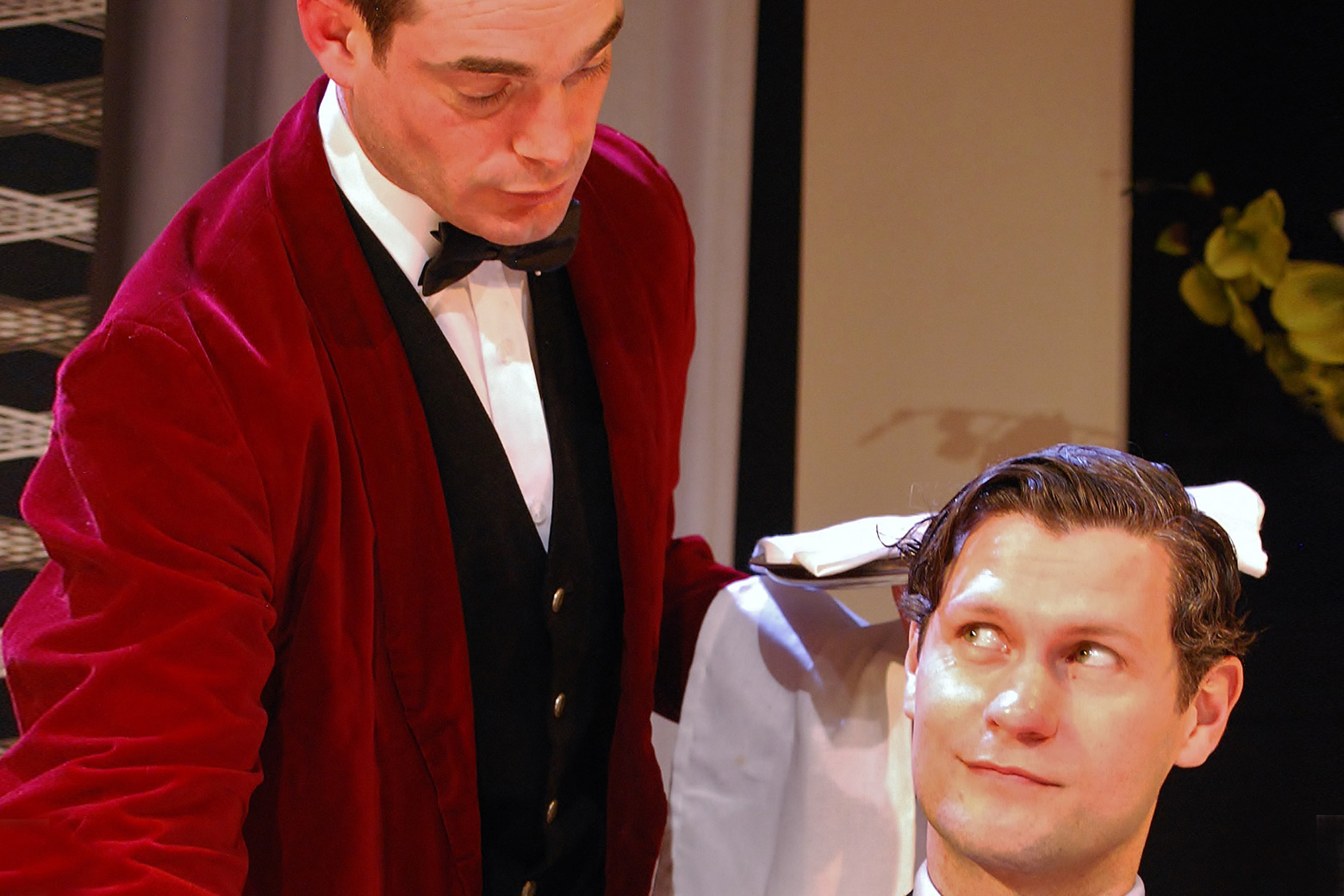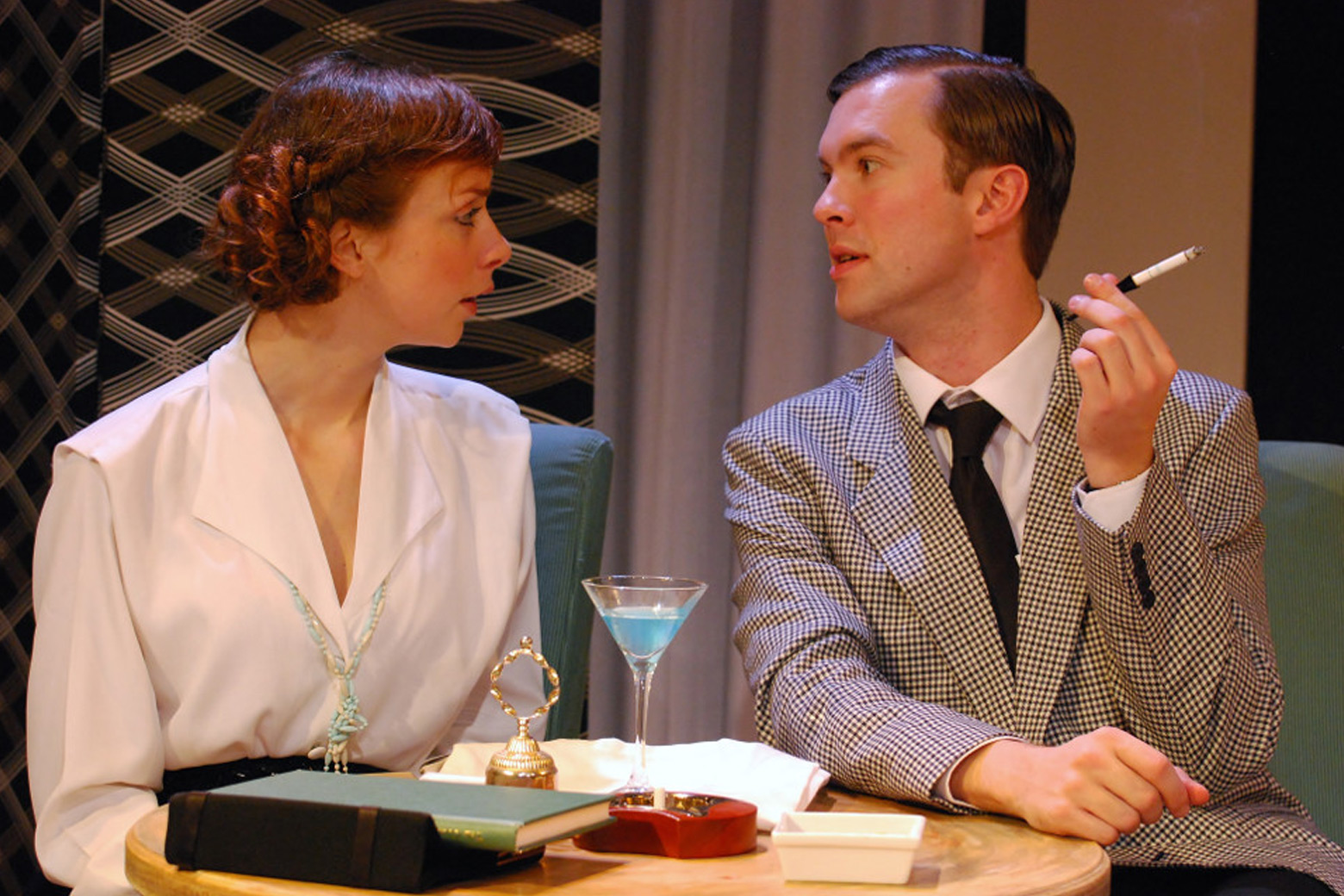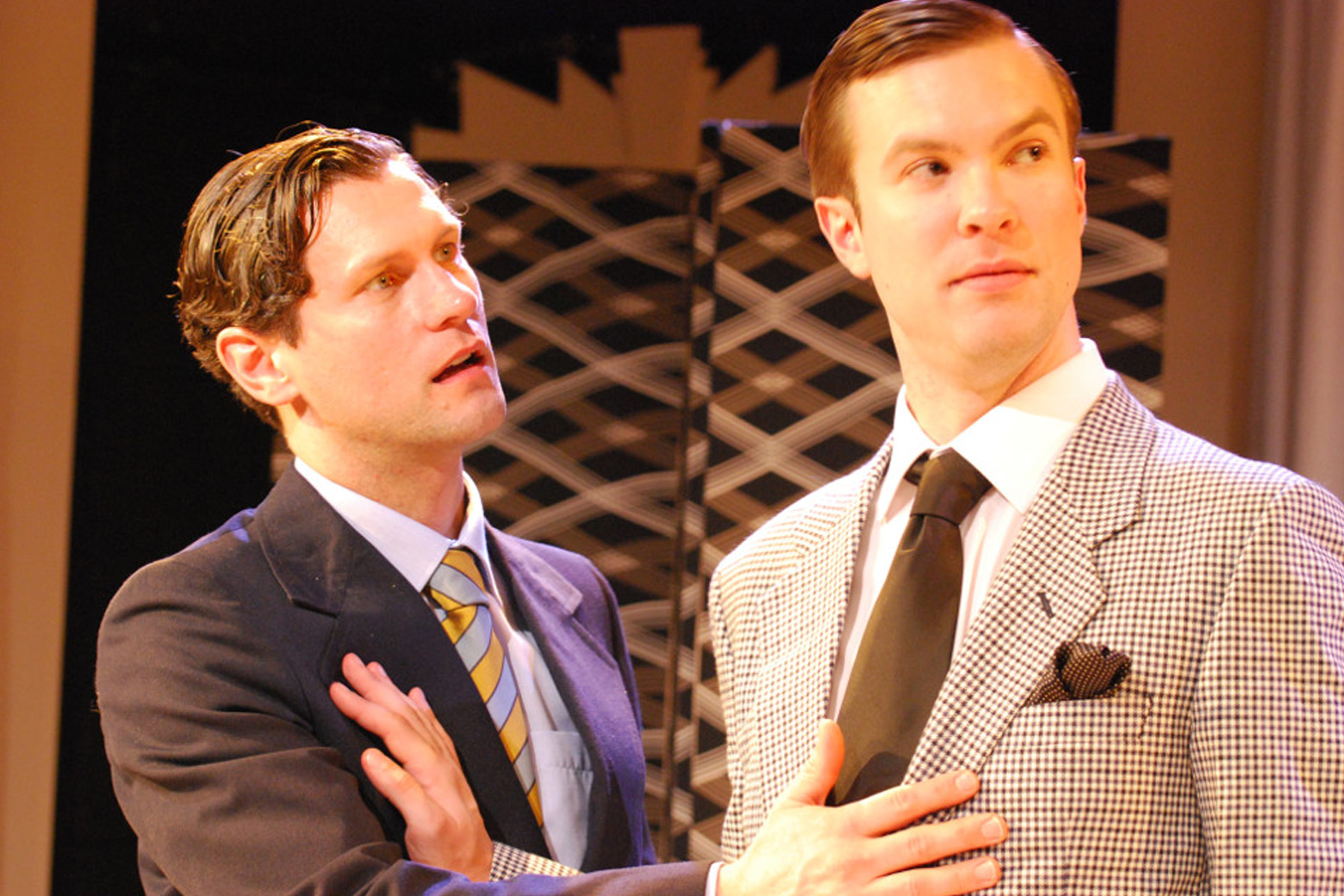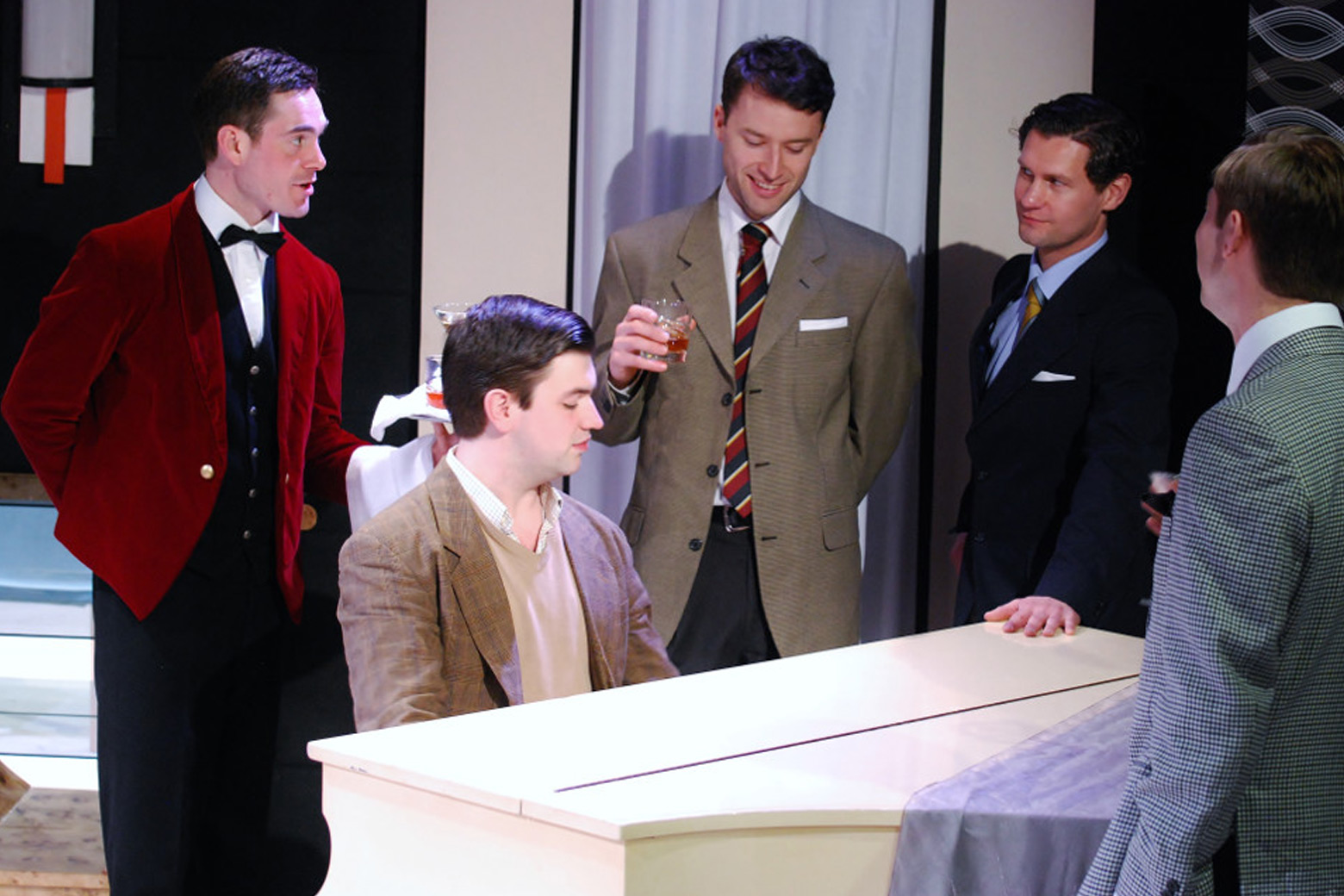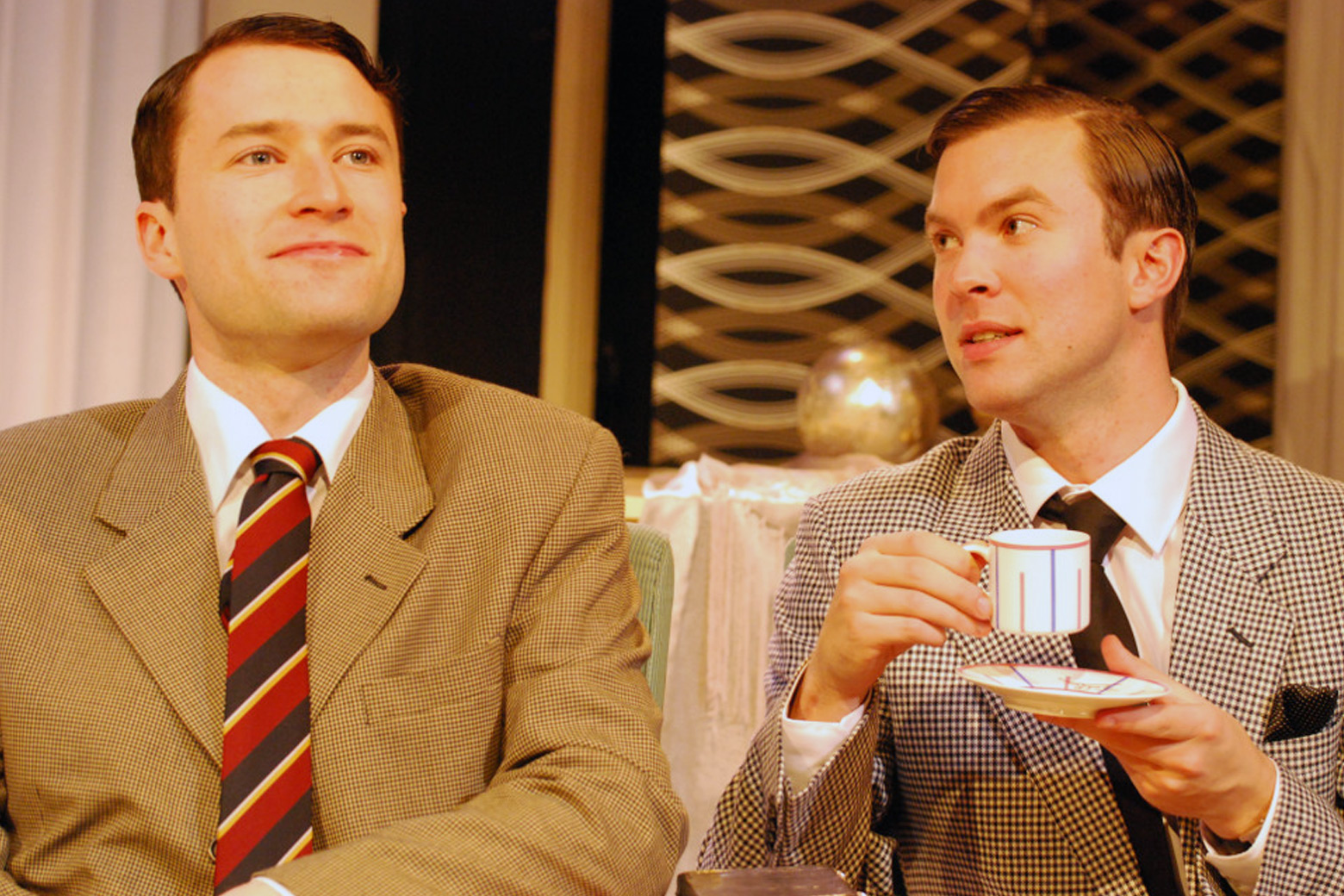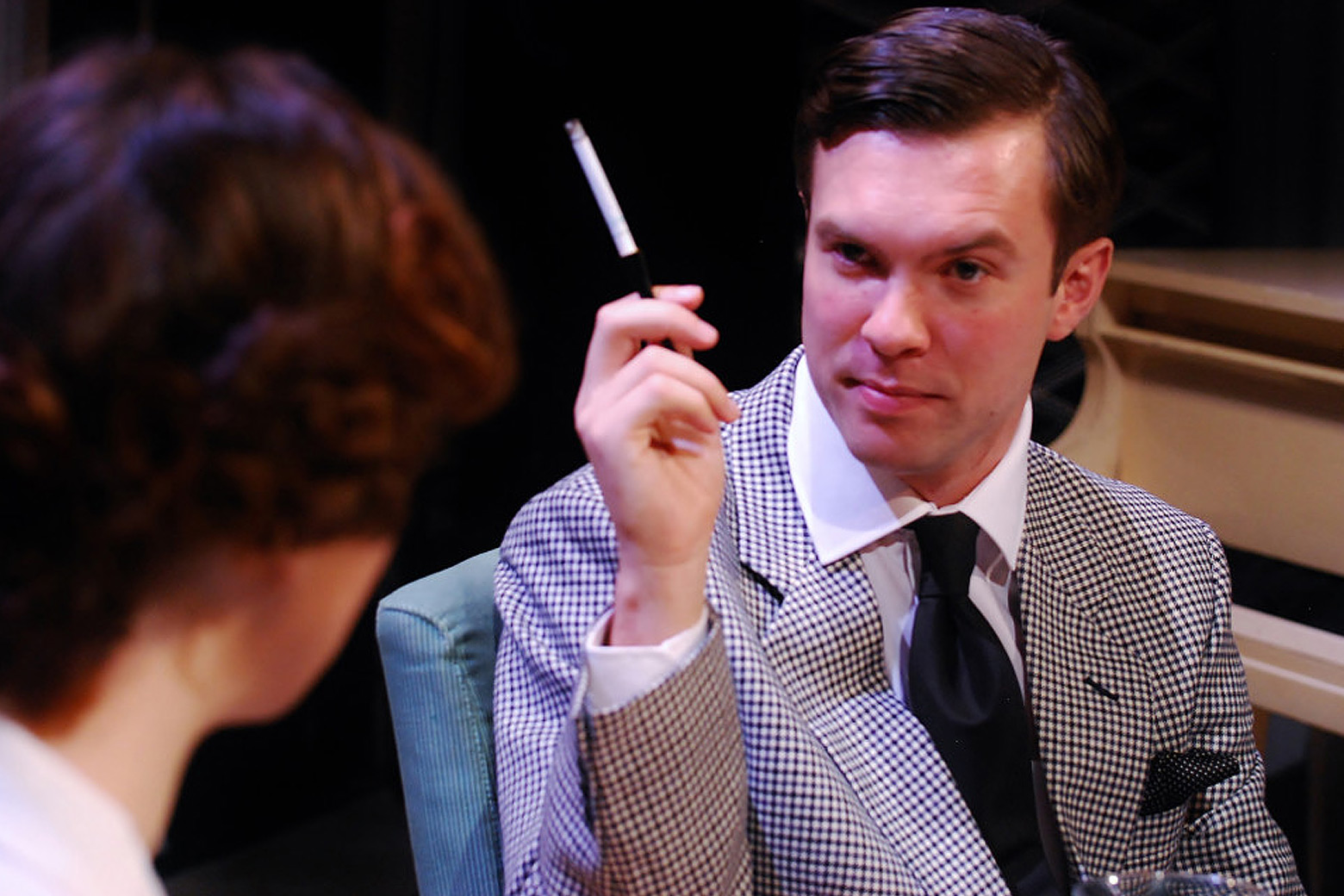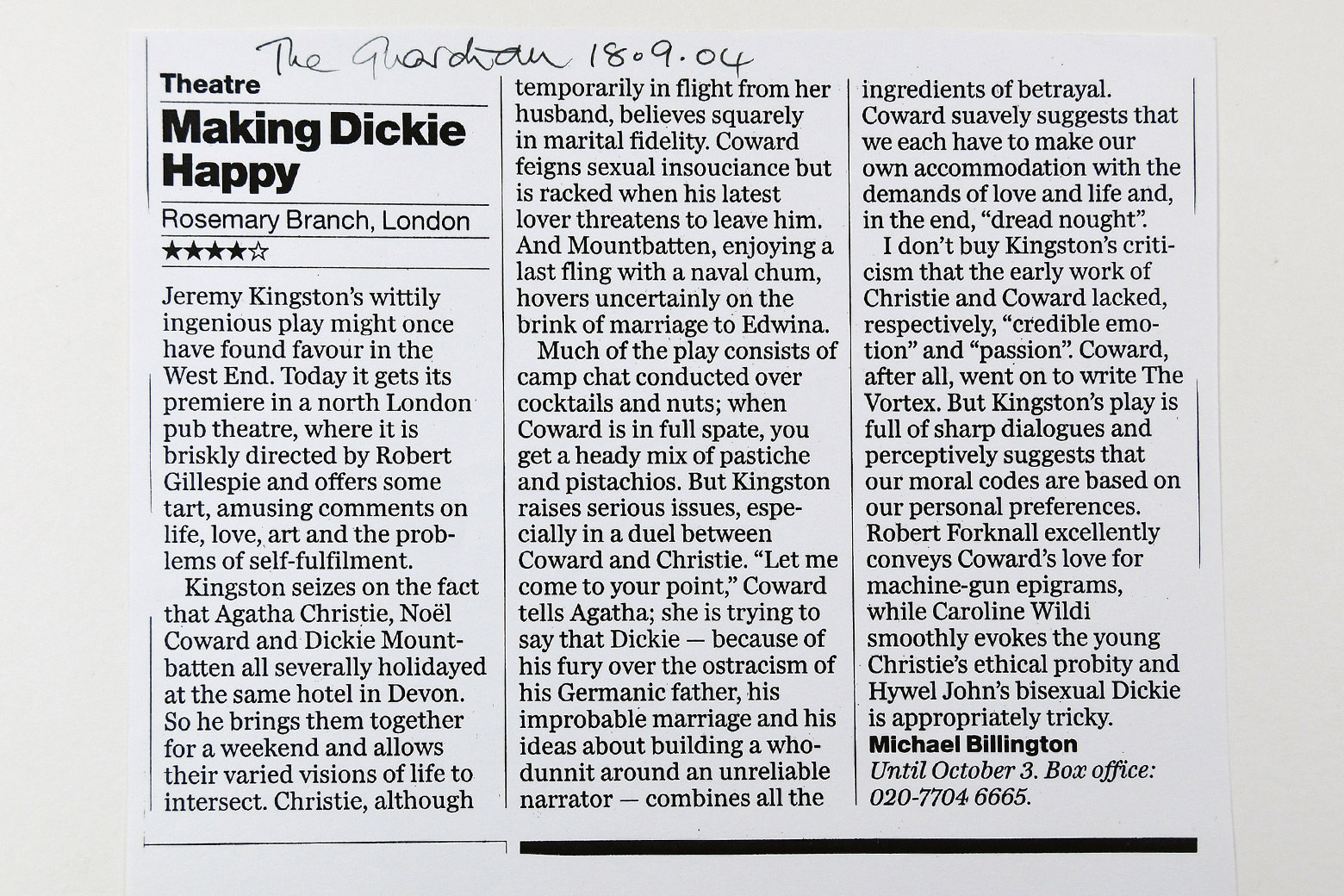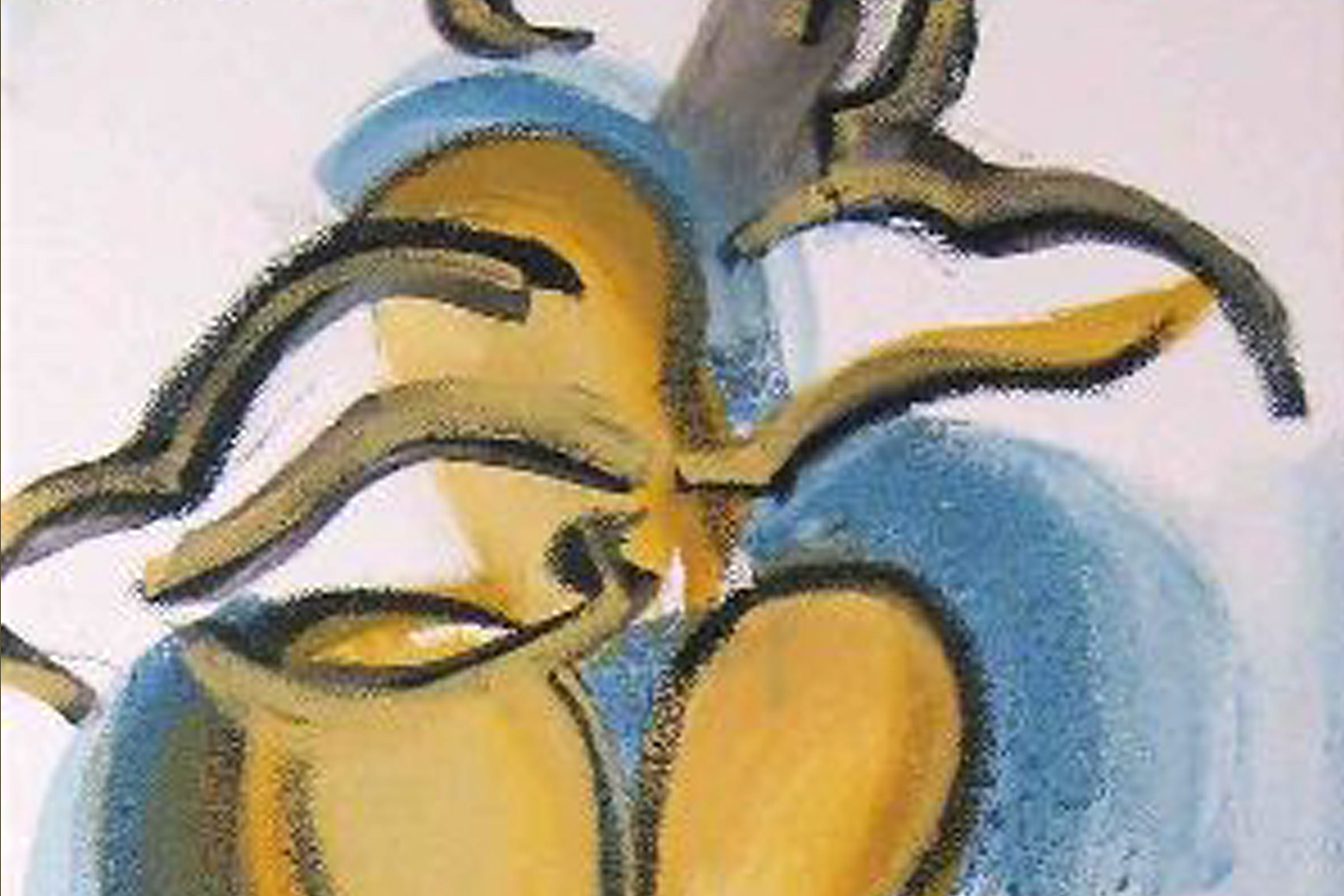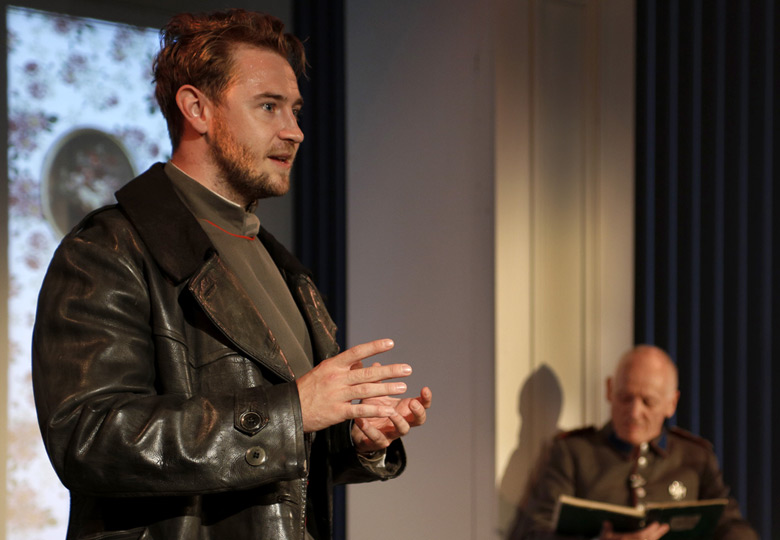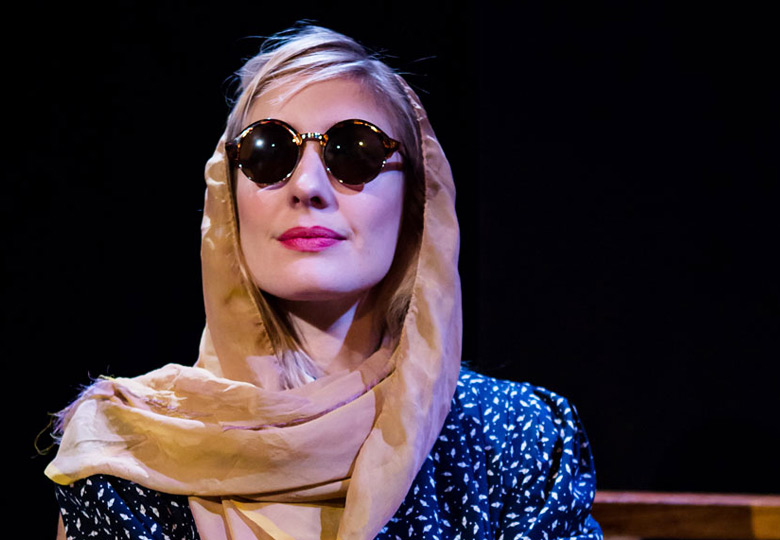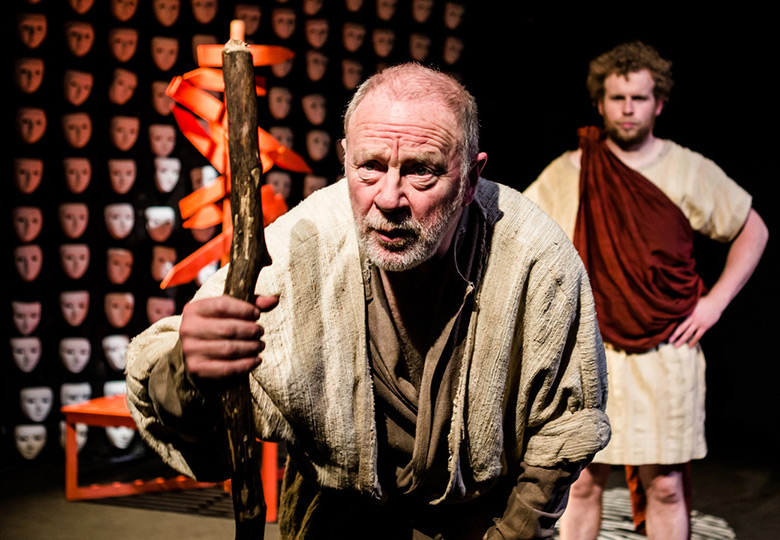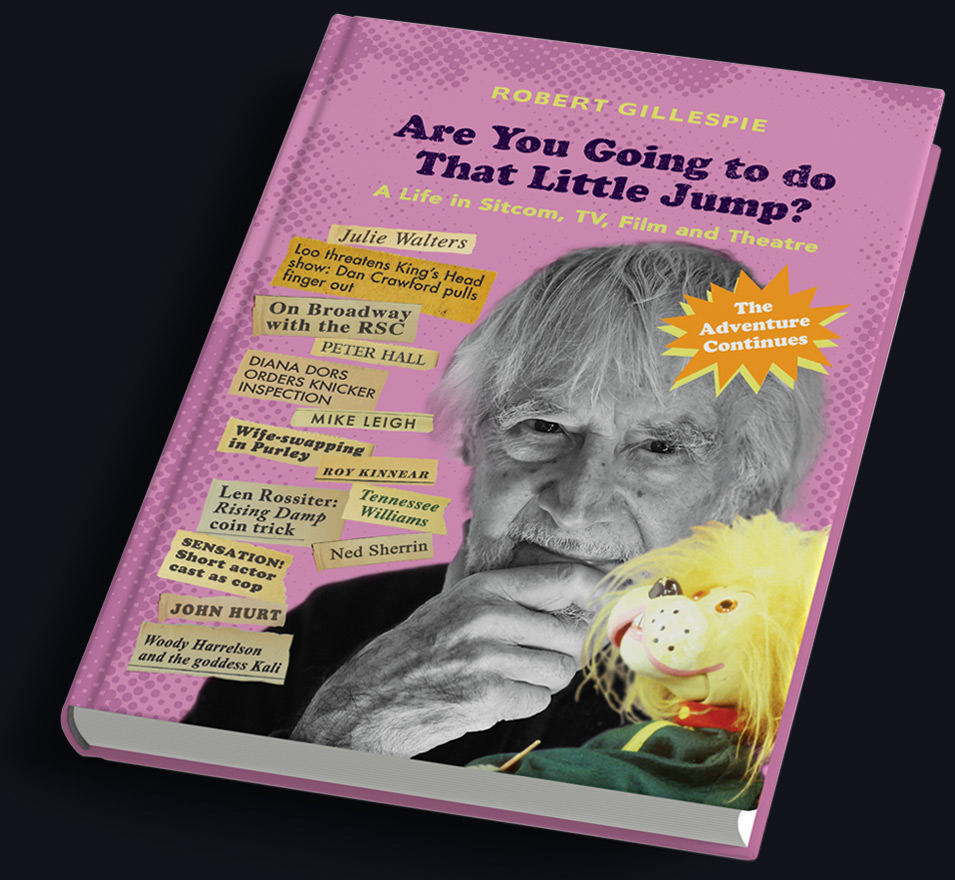Written by Jeremy Kingston
Directed by Robert Gillespie
First performed at the Rosemary Branch Theatre in 2004
Cast
Tono: David Peto
Cyril: Rob Pomfret
Agatha Christie: Caroline Wildi
Noel Coward: Robert Forknall
Dickie Mountbatten: Hywel John
J-Boy: Matt Reeves
Revived at the Warehouse Theatre, Croydon in 2005
Cast
Tono: Freddie Huntington
Cyril: Will Godfrey
Agatha Christie: Caroline Wildi
Noel Coward: Robert Forknall
Dickie Mountbatten: Hywel John
J-Boy: Nic Dawkes
Revived at the Tristan Bates Theatre in 2013
Cast
Tono: David Alderman
Cyril: Rob Pomfret
Agatha Christie: Helen Duff
Noel Coward: Phineas Pett
Dickie Mountbatten: James Phelips
J-Boy: Matthew Alexander
Author’s note:
The idea for Making Dickie Happy took its first vague shape when I discovered that Coward, Mountbatten and Agatha Christie all used to visit the same hotel on Burgh Island in Devon. I wondered if an encounter between these three might be worth exploring, especially if it could take place while they were still only at the threshold of their careers. The result might resemble a Christie detective story with, hopefully, some of the wit of a Coward comedy.
But if it was to be a Christie then what was the crime? At this point I unearthed the astonishing fact that it was Mountbatten who suggested to Agatha Christie the ‘treacherous’ plot she eventually used in her innovative novel The Murder of Roger Ackroyd. I would never have dared to invent such an incredible event, and it provided the focus and dramatic line for the ideas on life and love and partnership that I realised that I wanted to express in this play.
The song Devon comes from Noel Coward’s first revue London Calling!
Director’s note:
I had been delighted to work with Kingston on his Oedipus At The Crossroads – a witty exploration of the old Greek tale. It was exhilarating to find that someone else had been wondering at how absurd it is for grown-up people to listen to oracles – even to the point of doing away with their own children. So, it was with eager anticipation that I approached Making Dickie Happy. As well as enjoying all the exploration of how life and art spark off each other, I was hugely encouraged to find this sound thesis: that all attempts at relationships between humans (straight or gay) must end in compromise; all the couplings in this play do; and are no worse for that, given that nothing much else – let’s all face it – is possible… except in books.
From the play:
‘On the rare occasions when love deigns to come our way, it is the frenzy to have some one person in particular walk beside us: eat, drink, talk, listen, laugh, sleep, fart alongside. That is not what marriage is about, after the first few months of careful rapture. From rapture to rupture unless, dear Dickie, gazing upon your perfect lawn, you recognise that other grass is just as green and fragrant.’

